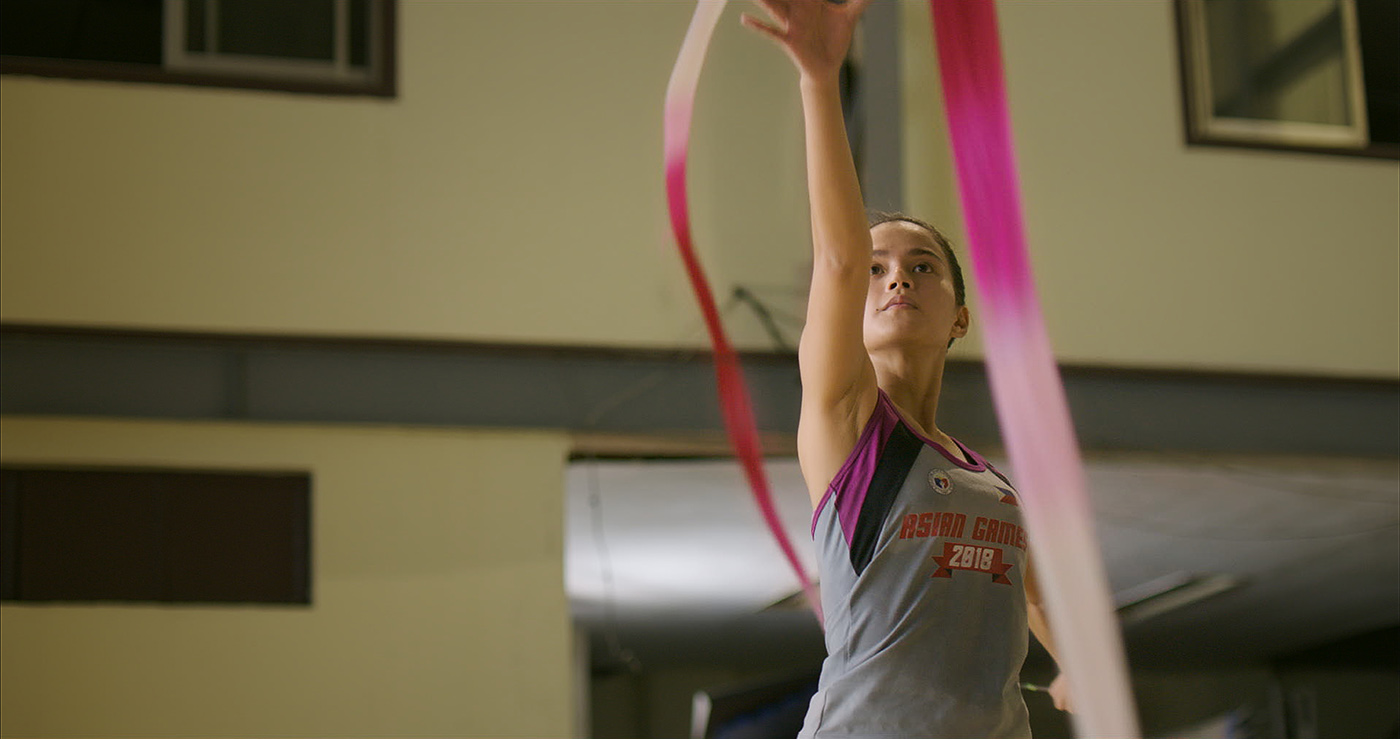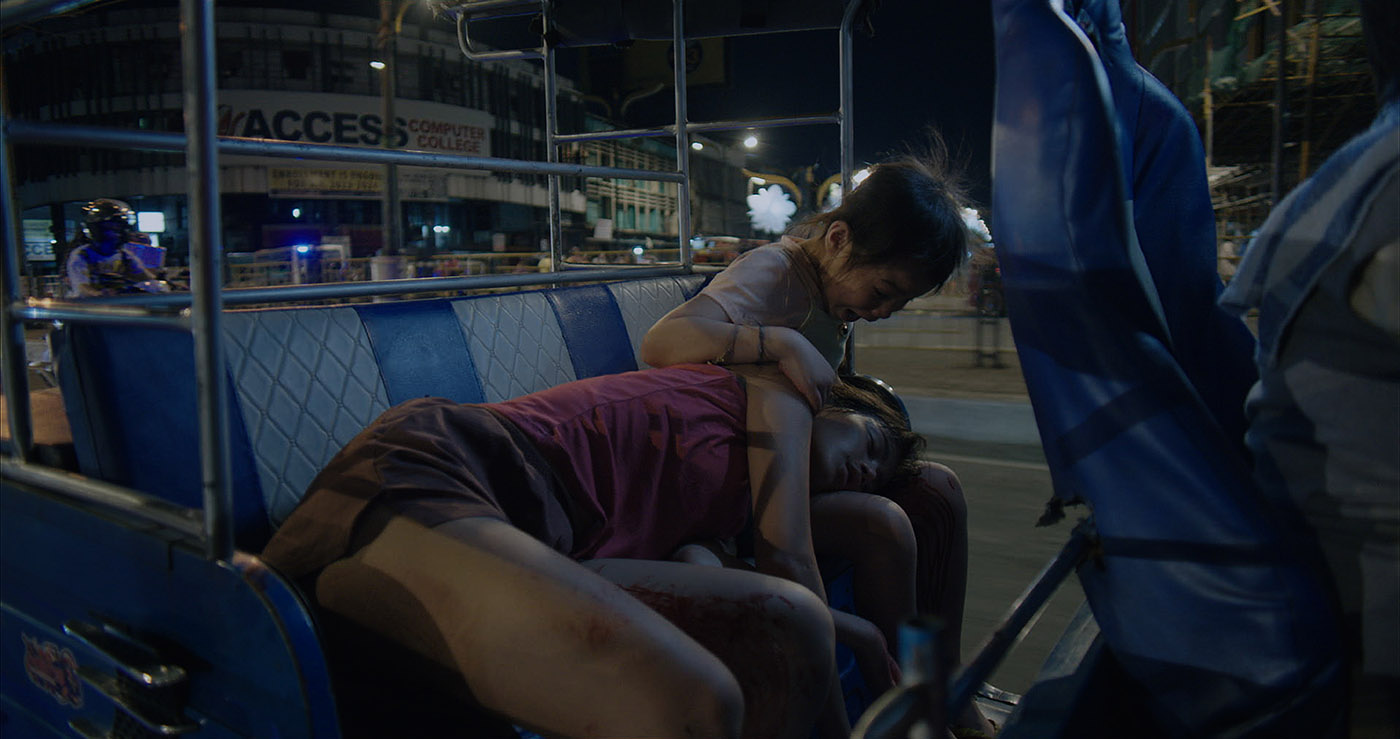REVIEW: ‘Sunshine’ is more than an abortion movie
This review features some spoilers.
In a media landscape where mentions of abortion are notably limited, local cinema also reflects this with a dearth of films tackling this sensitive topic. 12 Weeks, Anna Isabelle Matutina’s Cinemalaya feature debut, was the latest attempt I could recall, or at least one that had something useful to say. At the same time, a comprehensive sexuality education integrated at all education levels (separate from the education department’s sex ed order), as proposed in the anti-teenage pregnancy bill, has been under fire from the country’s conservative population.
Into this frantic context emerges Sunshine, the latest indie darling from writer-director Antoinette Jadaone. The sole Philippine entry in the Centrepiece section of the 2024 Toronto International Film Festival, the film finally comes home. It’s making its local premiere exclusively at SM cinemas, after touring the international film fest circuit to critical renown, including the Crystal Bear for Best Film at this year’s Berlin International Film Festival.
But make no mistake, as the picture refuses to be singled out as an “abortion film,” a descriptor so sweeping and limiting that it is seen only vis-à-vis morality. Jadaone finds new ammo with which to make sense of the polarizing topic: gymnastics. (The film’s TIFF world premiere, in fact, came at the heels of gymnast Carlos Yulo’s double Olympic gold in Paris.)
The sports drama unfolds through the title character, played by Maris Racal, a young gymnast whose preparation for national tryouts is upended after discovering she’s pregnant. Refusing to compromise her shot at Olympic glory, with her useless boyfriend (Elijah Canlas) almost instantly ditching her, Sunshine resorts to illegal abortifacients offered by Manila’s underbelly, where she runs into an enigmatic young girl (Annika Go) bent on tracking her every move and policing her every decision. Soon, she internalizes biblical shame.
Sunshine follows Jadaone’s feminist inclinations. Her directorial debut Six Degrees of Separation from Lilia Cuntapay (2011), is a raw mockumentary that doubles as a compelling paean to the titular screen bit actress, whose name is nearly synonymous with Philippine horror but has largely remained underappreciated. In Never Not Love You (2018), Nadine Lustre’s Joanne is a breadwinner who trades a long-awaited job promotion in Manila for a fraught chance to begin anew and dream together with her privileged boyfriend in London, only to wrestle with the punishing economics of romance. Fan Girl (2020) explores the dark side of being a superfan through a female character who’s a proxy for the film’s articulation about the psychology of idle worship in a nation forever beholden to it.
Shortcomings of these movies aside, Jadaone insists on narratives that do not treat and present the female gaze as though it’s self-explanatory. The director often edges toward gray areas and destabilizing standpoints, whether or not they wind up humorous, fascinating, schmaltzy, or troubling.
Whereas Jadaone’s previous movies are attuned to the conventions of their respective genres, Sunshine offers something new to the director’s dramaturgical defaults. The film is an intersection of neorealism and magical realism. It trains the camera on Manila’s grime, decay, and nonstop noise, embracing its outcasts and harsh truths (the Lino Brocka comparisons are inevitable), just as it punctuates the gritty reality with a magical invocation via the imaginary friend that trails Sunshine.
“Media literacy” would tell you that the spectral presence is a representation of the internal-external friction the heroine deals with; fetus in the flesh and the body that refuses to carry it; the back-and-forth between morality and pragmatism. (Jadaone, in an interview with Filmmaker Magazine, revealed she was inspired by the imaginary character in Taika Waititi’s 2019 satirical drama Jojo Rabbit.)
But beyond this, the make-believe figure is a surrogate for the conservative, pro-life fraction of the audience, with the director opting to engage in the subject matter’s complexity instead of comfortably locating the film in an echo chamber. While the narrative device could prove as an apparent play at sympathy, indulging in a “will she, won’t she” kind of thinking (surface-level reading could also suggest that women seeking abortion are deluded, ridiculous as that implication might sound), it also offers access to the broader violence disguised as “conscience” that puts women, regardless of gender identities, at a disadvantage.

If anything, Sunshine is less about the act of abortion itself than about the systems that encourage women to settle for dehumanizing rights already decided for them by a patriarchal few, systems that prohibit them from dreaming, and tell them that to dream only means more labor, nothing more.
Sunshine, like Petersen Vargas’ Some Nights I Feel Like Walking (which made its Philippine premiere in June), harnesses the metropolis as a character of its own, instead of reducing it to a mere symbolic backdrop. Whereas Some Nights steeps its urban tale in neon erotica, completely absent of daylight, Sunshine shifts between the city’s diurnal and nocturnal environments.
Pao Orendain’s camerawork here chiefly reaps magic from close-ups and interior shots, often framed from the window and dotted by a shaft of light (hence the Brocka sentiments), locating the viewer into the heroine’s intimate yet anxious state. The self-induced abortion scene in the sketchy motel, a sight casually interrupted by frantic railway noise, is particularly visceral that you can almost feel the texture of the image.
The camera also draws focus to the irony that permeates Manila’s streets, particularly around the vicinity of Quiapo Church, where makeshift stalls selling figurines, scapulars, and all sorts of religious paraphernalia also offer abortion drugs and quack treatments, just as banners declaring “abortion is murder” remain a typical sighting. In other scenes where Sunshine traverses the cityscape, the visuals are more straightforward. Accompanying the images is a soundscape that immersively mirrors the congestion, exhaustion, and urban din that form part of the DNA of the country’s capital.
Jadaone’s script nearly leans on the miserablist. When Sunshine finds an opportunity to pull herself out of the vexing situation, poverty immediately gets in the way, leaving her with no choice but to ask her boyfriend for a meager P5,000 to secure the abortion drug and a cheap motel room to perform the deed herself. Yet even in Manila’s hospitals, the conditions are dire; patients are forced to share beds, and hallways are turned into makeshift wards, crowded by people in need of attention beyond the medical. Rape and casual prostitution also get in the way, as in the case of Menggay (Rhed Bustamante), the pregnant 13-year-old Sunshine comes across in Quiapo.
In a highlight moment, Sunshine, livid upon meeting her friend’s abuser, suddenly picks up a beer bottle and whacks it over the man’s head, before sprinting to escape the scene. (Curiously, Jadaone plumbs the politics of self-determination by contrasting Sunshine’s ability to decide for herself with Menggay’s distance from that very sense of agency.) Even the Quiapo vendors selling abortifacients, who some might think merely exploit the desperation of their customers, are also victims who simply don’t earn enough.
Unflattering as these depictions are, it’s hard to deny that these aren’t routine realities in the social inferno that is the Philippines. Still, there is humor, whether in a scene that involves a knife interrupting a silly argument, or in another that sees a self-righteous doctor preaching the goodness of the divine.

As Sunshine, Racal delivers a performance that would be a disservice to reduce to neat superlatives. It’s a physical portrayal that required the actor to undergo training with national gymnastics coaches for nearly a year. It’s a role that might put her in the center of another controversy after barely surviving the previous one. But just as Sunshine is asked to “drown out the noise” whenever she steps on the mat, Racal distills every layer and emotion into a character that’s simply life-like, almost free from the veil of performance-making. Jadaone once told me that her ideal lead performance is one that “is part of something bigger than herself.” There has not been a more worthy portrayal in local cinema this year.
At the same time, the movie functions as a reintroduction to the boundless talent of Jennica Garcia, who plays Sunshine’s elder sister, a single mother trying to keep everything intact. Her portrayal expertly captures what a supporting performance should be—one that has enough screentime to be an emotional anchor for the lead but also generates her own moment. There’s a kind of invisible labor informing the character that Garcia encapsulates with an onscreen presence that always feels grounded and never incidental.
Sunshine is hardly a social exposé. What ripples throughout this partly winding urban tale is a ready, fatal fact about the place of women in this eternally eroded nation that we’d rather dismiss as “controversial” or “divisive” because we refuse to listen. The film’s visuals might be artful, but they don’t always convey a pretty picture. It’s no coincidence that the movie’s narrative throughline is the community that Sunshine finds in the women around her: her elder sister, her best friend (Xyriel Manabat), despite her initial inhibitions, her coach (Meryll Soriano), the young Menggay, the compassionate doctor (Angeli Bayani), and even the imaginary friend. Though this sense of solidarity comes at varying degrees, it keeps Sunshine afloat and does not let her think of herself as a monster for terminating an unwanted pregnancy.
Once Sunshine nears its final shot, I keep thinking of Fan Girl’s insular ending that succeeds its heroine’s already exhausting journey. I’m glad to learn that our heroine this time does not succumb to sheer epiphany. Here, hope actually feels like a tangible possibility instead of an unwarranted emotional wallop.
Sunshine is perhaps not Jadaone’s most definitive work; That Thing Called Tadhana (2014) or Never Not Love You might claim that distinction. But it is her sharpest creation yet. It took a whole lot of research and lived experiences to put this story on the screen. It took a bit of time for the film to make its way back to where it started. It’s a miracle that it even got the go signal to be screened publicly. I can already sense all the hot takes and thinkpieces it will generate. And I can only hope that it will be as meaningful as this.
Sunshine is now out in local theaters.


